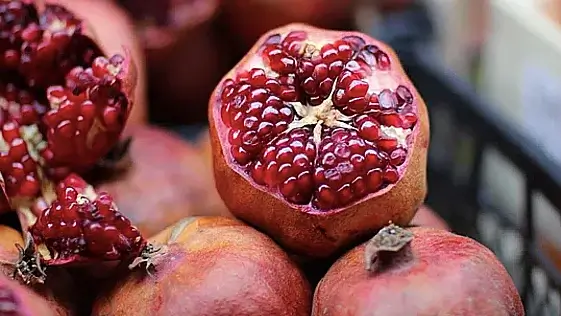How to Incorporate More Antioxidants into Your Daily Meals
 Antioxidant molecules capturing and neutralizing free radicals
Antioxidant molecules capturing and neutralizing free radicalsUnlocking the Power of Antioxidants in Everyday Nutrition
Antioxidants are essential compounds that protect the body from oxidative stress and cellular damage caused by free radicals. For those wondering how to incorporate more antioxidants into your daily meals, there are scientifically supported strategies to enhance dietary intake and promote overall health. This article explores practical and evidence-based ways to increase antioxidant consumption.
What Are Antioxidants and Why Are They Important?
Antioxidants are molecules that neutralize free radicals, which are unstable atoms or molecules that can damage cells and contribute to chronic diseases such as cardiovascular conditions, neurodegenerative disorders, and liver dysfunction. Common antioxidants include vitamins C and E, beta-carotene, selenium, and polyphenols found in fruits, vegetables, nuts, and seeds.
A diet rich in antioxidants supports liver health by reducing inflammation and oxidative stress—key factors in liver disease progression. Incorporating antioxidants is not only beneficial but vital for maintaining cellular health and preventing chronic diseases.
Daily Strategies to Increase Antioxidants in Your Diet
1. Start Your Day with Antioxidant-Rich Breakfast Options
Incorporating antioxidant-rich foods into your breakfast is a simple way to boost your daily intake. Options include:
- Smoothies: Combine spinach, blueberries, chia seeds, and a splash of green tea for a nutrient-packed start.
- Oatmeal Toppings: Add fresh berries, a sprinkle of cinnamon, and a handful of walnuts to your oatmeal.
- Whole-Grain Toast with Avocado: Enhance this with a dash of turmeric and black pepper for additional antioxidant support.
These breakfast choices are rich in polyphenols, vitamins, and minerals that promote cellular health.
2. Focus on Colorful Fruits and Vegetables
The vivid colors of fruits and vegetables often indicate high antioxidant content. For example:
- Red and Purple Foods: Tomatoes, strawberries, and eggplants contain lycopene and anthocyanins.
- Orange and Yellow Options: Sweet potatoes, carrots, and oranges are abundant in beta-carotene and vitamin C.
- Dark Green Vegetables: Kale, spinach, and broccoli are rich in lutein, zeaxanthin, and other powerful antioxidants.
Aim for a "rainbow on your plate" at every meal to maximize antioxidant diversity and benefit.
3. Snack Smart with Antioxidant-Packed Options
Replace processed snacks with nutrient-dense alternatives such as:
- Dark Chocolate: Choose varieties with at least 70% cocoa for a dose of flavonoids.
- Nuts and Seeds: Almonds, sunflower seeds, and pecans are excellent sources of vitamin E and selenium.
- Fresh or Dried Fruits: Opt for apples, apricots, or raisins without added sugars.
4. Integrate Herbs and Spices into Meals
Herbs and spices are among the most concentrated sources of antioxidants. Adding the following to your dishes can significantly enhance your intake:
- Turmeric: Contains curcumin, known for its anti-inflammatory and antioxidant properties.
- Ginger: Offers powerful phenolic compounds that combat oxidative stress.
- Cinnamon: Packed with polyphenols and ideal for sweet or savory recipes.
- Garlic and Onion: Rich in sulfur-containing compounds that support detoxification and antioxidant activity.
5. Drink Antioxidant-Rich Beverages
Certain beverages can contribute significantly to your antioxidant intake. Consider the following:
- Green Tea: High in catechins, which protect against oxidative damage.
- Coffee: A major source of dietary antioxidants for many individuals.
- Fresh Juices and Smoothies: Opt for those made from whole fruits and vegetables to retain fiber and nutrients.
Moderation is key, as excessive consumption of caffeinated beverages can have adverse effects.
6. Incorporate Legumes and Whole Grains
Legumes and whole grains are excellent sources of antioxidants like flavonoids, saponins, and phenolic acids. Examples include:
- Beans: Black beans and kidney beans are particularly rich in antioxidants.
- Whole Grains: Quinoa, barley, and oats offer both fiber and antioxidant protection.
Including these foods in soups, salads, or as side dishes ensures a consistent intake of beneficial compounds.
Enhancing Bioavailability of Antioxidants
While eating antioxidant-rich foods is crucial, their bioavailability—the extent to which nutrients are absorbed and utilized by the body—is equally important. Here are tips to enhance absorption:
- Pair Fats with Fat-Soluble Antioxidants: Vitamins A, D, E, and K are better absorbed when consumed with healthy fats, such as olive oil or avocado.
- Cook Appropriately: Some antioxidants, like lycopene in tomatoes, become more bioavailable when heated.
- Avoid Overprocessing: Excessive heat or cooking can degrade certain antioxidants like vitamin C.
Understanding these nuances can help you maximize the health benefits of your meals.
The Role of Antioxidants in Liver Health
The liver, the body’s primary detoxification organ, is particularly vulnerable to oxidative stress. Antioxidants mitigate this by:
- Reducing Inflammation: Antioxidants counteract pro-inflammatory molecules, preventing damage to liver cells.
- Protecting Hepatocytes: They shield liver cells from the toxic effects of free radicals and environmental toxins.
- Enhancing Detoxification: Certain antioxidants support enzymatic pathways involved in neutralizing harmful substances.
Studies have shown that diets high in antioxidants can slow the progression of liver diseases, including nonalcoholic fatty liver disease (NAFLD) and cirrhosis. Learn more about liver health and antioxidants.
Balancing Antioxidant Intake
While antioxidants offer significant health benefits, balance is essential. Over-supplementation can lead to harmful effects, such as pro-oxidant activity, where antioxidants begin to act as free radicals. Prioritize obtaining antioxidants through whole foods rather than relying on supplements unless directed by a healthcare professional.
Practical Tips for Meal Planning
To incorporate antioxidants seamlessly into your meals, consider these practical strategies:
- Meal Prepping: Prepare antioxidant-rich meals in advance to save time and ensure consistent intake.
- Experiment with Recipes: Explore international cuisines rich in antioxidant-packed ingredients, such as Mediterranean or Asian dishes.
- Use Fresh, Seasonal Produce: Fresh fruits and vegetables often contain higher antioxidant levels than frozen or processed options.
- Stay Informed: Keep up-to-date with nutritional research to optimize your dietary choices.
Conclusion
Learning how to incorporate more antioxidants into your daily meals is a practical step toward improving overall health and protecting against oxidative damage. By prioritizing diverse, colorful, and nutrient-rich foods, you can ensure a steady supply of these vital compounds to support not only liver health but also your overall well-being. Make antioxidants a cornerstone of your diet for a healthier future.
Share this article

Dr. Paul Martin Gacrama, MD
Dr. Gacrama is a Board-Certified Internist specializing in Internal Medicine and Adult Gastroenterology. See Full Bio.
-
1. Halliwell B, Gutteridge JMC. Free Radicals in Biology and Medicine. Oxford University Press, 2015.
-
2. Sies H. Oxidative stress: Eustress and distress in redox regulation. J Intern Med, 2020.
-
3. Méndez-Sánchez N, Bugianesi E, Gish RG, et al. Global multi-stakeholder endorsement of the MAFLD definition. Lancet Gastroenterol Hepatol, 2022.
-
4. Prior RL, Wu X, Schaich K. Standardized methods for the determination of antioxidant capacity. J Agric Food Chem, 2005.
-
5. George J, Liddle C. Nonalcoholic fatty liver disease: Pathogenesis and treatment. Ann Rev Med, 2020.
-
6. American Liver Foundation. The role of diet in liver health. Liver Foundation, 2023.
-
7. Del Rio D, Rodriguez-Mateos A, Spencer JP, et al. Dietary (Poly)phenolics in Human Health. Antioxidants & Redox Signaling, 2023
Does Hepatitis B Increase the Risk of Fatty Liver? Chronic hepatitis B (HBV) is a global health concern, affecting approximately 296 million people worldwide.
How Antioxidants Protect the Liver From Oxidative Stress There’s a moment every doctor remembers — the patient’s eyes widen as they connect their diet to...
How to Manage MAFLD with Lifestyle Changes Managing metabolic dysfunction-associated fatty liver disease (MAFLD) primarily involves adopting lifestyle...

You might enjoy more articles by
Dr. Paul Martin Gacrama, MD
 Disease
Disease Diets
Diets Recipes
Recipes Supplements
Supplements Management
Management Calculators
Calculators Quizzes
Quizzes Glossary
Glossary
























